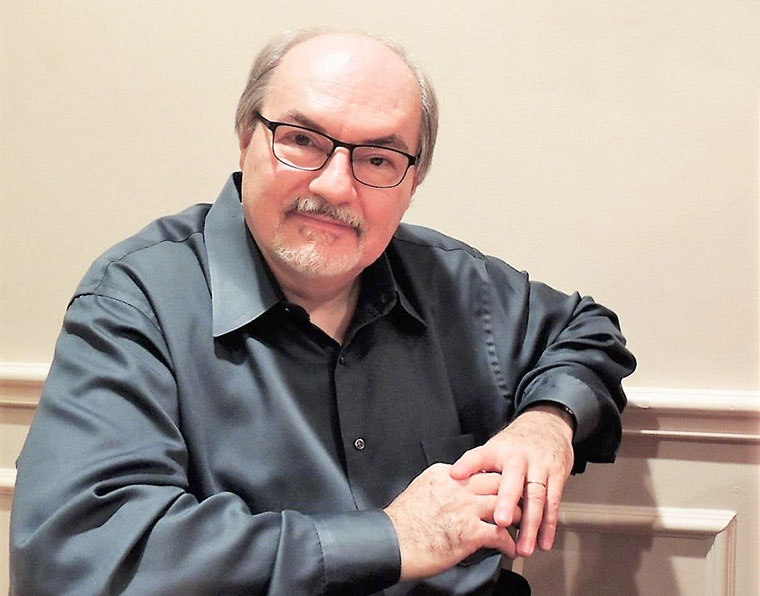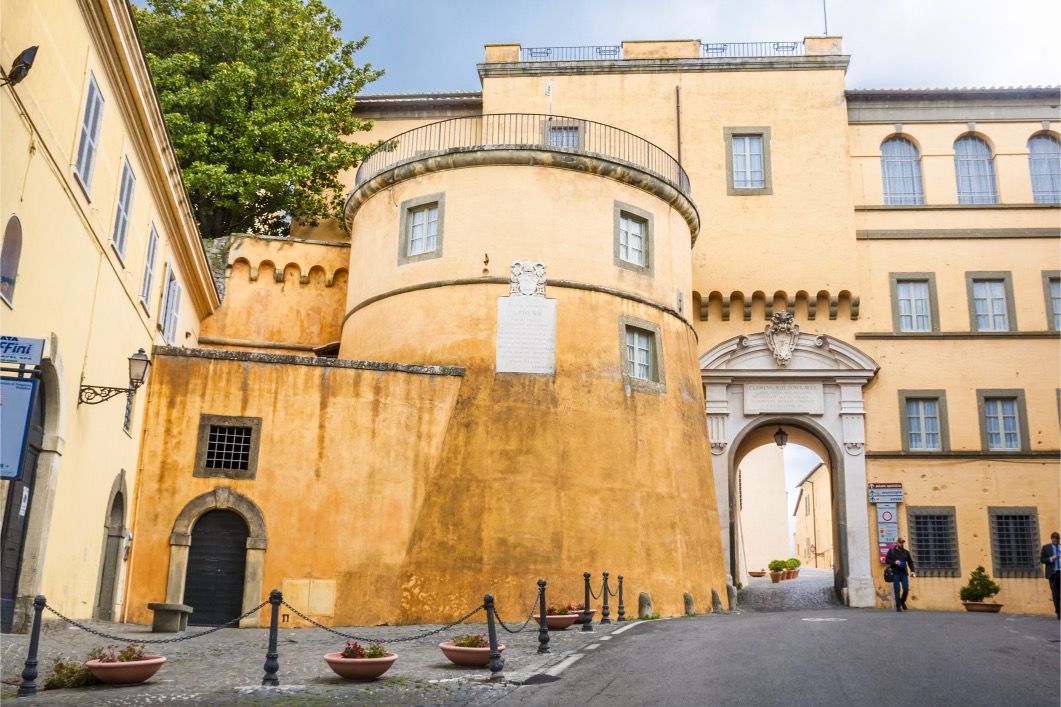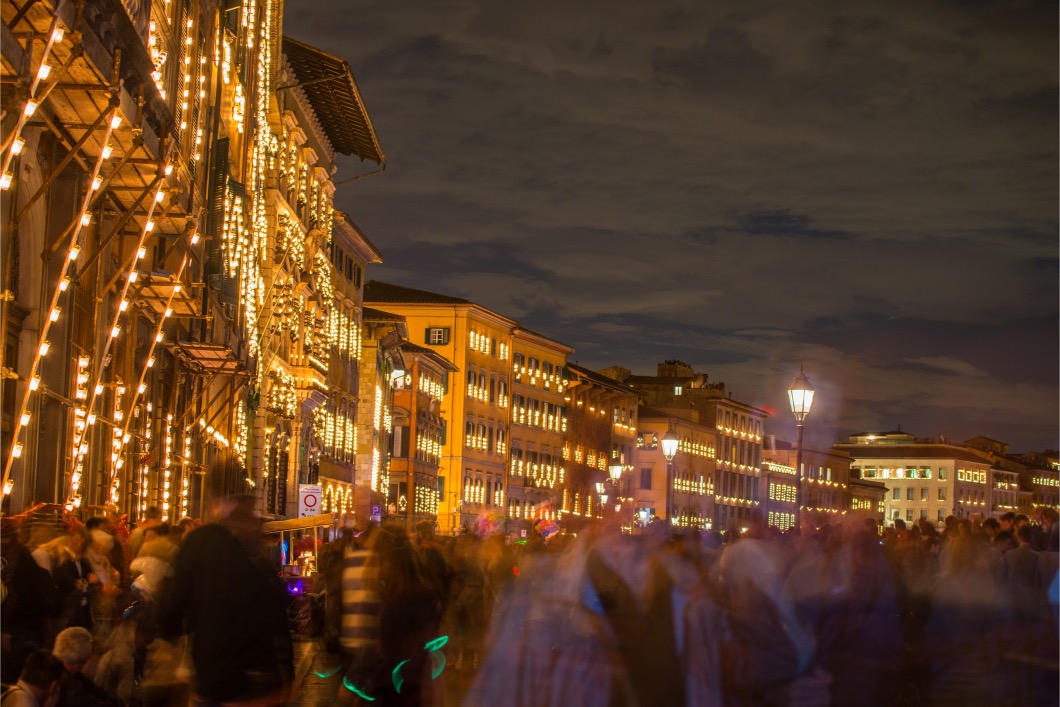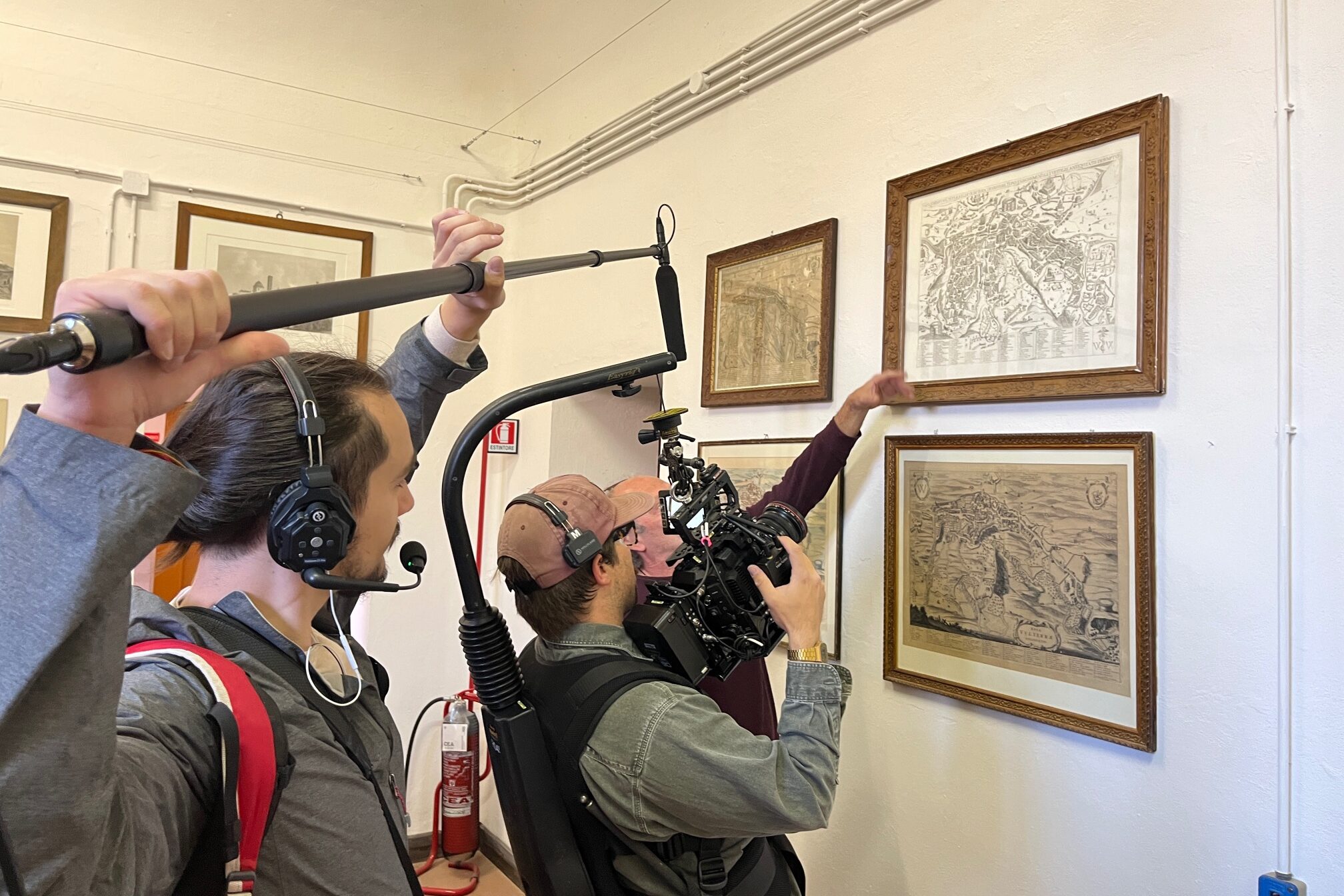Professor Alessandro Carrera, a native of Lodi (Lombardy, Italy), has had at least three separate, but, at the same time, intertwined careers.
His early attempts at songwriting have run in parallel to his awarded writing efforts in prose and poetry. Philosophy has always reigned supreme, with German thought holding a special place in his heart.
Thirty years of academic teaching in North America have given him an extraordinary freedom to combine his Italian and German musical and philosophical background with North American influences.
It follows that listening to him is a very special treat. If you hurry, maybe you can still catch Professor Carrera, who gave, on February 9th at the UCLA Department of Italian, a double lecture about Nihilism’s impact on the contemporary idea of Europe and about various expressions of Italian folk music.
Please introduce yourself. Tell us more about your cultural background, influences and studies.
I was born in Lodi, Italy. I grew up on the outskirts of Milan, where I attended the Liceo Classico. In 1980, I graduated in Philosophy from the University of Milan with a dissertation on the relationship between poetry and music in German Expressionism and in Arnold Schönberg in particular.
The year before, during my first trip to the US, I had been to Los Angeles’ University of Southern California, where I had had the opportunity to visit the Schönberg Institute (that, since late 90s, relocated to Vienna) and interview the then director, Leonard Stein.
At the same time, however, I was interested in popular music and, in the month I had spent in California, I had collected a lot of material that went into my first book, Musica e pubblico giovanile (Music and Young Audiences, 1980), which was published a few months before I discussed my dissertation and has been reprinted in an expanded edition in 2014 as a “cult book.”
I suppose that there is a strong chance that whatever you did when you were 25 becomes cult sooner or later. But that book was indeed the first comprehensive sociological study of how American and British popular music had impacted Italy’s post-WWII generations. It is outdated now, but it has opened up a field of research.
In 2016, in recognition of my contribution to the study of popular music, I was awarded a Ph.D. by Publications by the Department of Music at the University of Huddersfield, UK.
In the 70s, you started out in Milan as politically engaged singer-songwriter. What do you remember about that period?
I remember everything, which is not necessarily a good thing, because those were difficult years. Italy was under the sway of opposite political forces. Terrorism both from the extreme right and extreme left was in the news every day. The good side was that you had to grow up fast, learn a lot in a short time, and know how to navigate a complex environment. There was a lot of cultural adventurousness that was somewhat lost or dispersed in the following decade.
When I was young, my strongest ambition was to study classical music and become a composer or an orchestra conductor. For various reasons, such goal was out of my reach.
Afterwards I became interested in folk and popular music, and I turned into a self-taught folksinger and singer-songwriter. My technique was never very good, but those were the times when if you had a “message” you could get away with a lot of technical shortcomings. People would listen to you anyway.
In 1975, I became part of L’Orchestra, a Milan-based co-operative of folk, jazz, and progressive rock musicians, and my involvement with L’Orchestra, which was also an independent record label, lasted until 1982.
By that time, things had changed, and strong political commitment was no longer on the forefront. When the label folded, I went looking for something different.
For a few years, before I came to the U.S., I was managing editor of various journals of alternative medicine and esoteric philosophies. It was quite a change, but also something I needed in order to get out of an oppressive and totalizing notion of political involvement.
In 1987, you came to the United States as a Lettore d’italiano, a teaching position sponsored by the Italian Ministry for Foreign Affairs. How was adjusting to the US lifestyle?
In the 1980s, I really wanted to go abroad. I was not satisfied with what I was doing in Italy. With the sponsorship of the Ministry for Foreign Affairs, I had two chances: teaching in a high school in Germany or come to the US.
As a philosophy student, I have always been fond of German culture, but my English was better than my German. I had practiced the first by memorizing Woody Guthrie’s and Bob Dylan’s songs. I could not do the same thing with Wolf Biermann or other German singer-songwriters. They did not have the same beat.
Adjusting to America was quite natural to me, I do not remember any cultural shock. Perhaps it was because I had assimilated so much of American culture when I was in Italy – a country where everybody I know reads American literature, watches American films, and listens to American music. In Italy, people ask me if I have read the latest American bestseller and I am almost embarrassed to say no, I do not have the time, I have to keep up with what is happening in my home country.
You then embarked on a successful literary career, culminated with the Montale Prize for Poetry in 1993, the Loria Prize for short fiction in 1998, and the Bertolucci Prize for Literary Criticism in 2006. What made you turn to literature?
I never had to turn to literature because I had never abandoned it. I began writing poems when I was eight years old and I published my first short story when I was eighteen. For many years, I moved freely between poems and songs, but I never published a poetry collection until 1988.
America helped me a lot to focus on poetry. In Italy, I knew musicians and philosophers, but I did not really interact with poets. Things changed in the United States, though.
In the 1980s, I also wrote a long novel that was published in installments in one of the journals I edited, but it was not under my name, it was a collective enterprise. I never thought of that novel as finished and publishable in a volume. It is still there, waiting for the final draft.
America changed the direction of my prose as well. The short stories that I wrote after coming to the US had nothing to do with that very “European” novel, which in part reflected my experience between Italy and Germany between the late 1970s and the early 1980s.
In 1998, I received the Loria Prize for a short story that takes place in Texas during the first Gulf War.
I had some success with La vita meravigliosa dei laureati in lettere (The Wonderful Life of Italian Majors), a short novel that Palermo-based, Sellerio, published in 2002. It had seven reprints and it made its appearance in the best-sellers list.
The novel is a mild satire of the Italian school system, but I could not have written it in Italy. The inspiration came from listening to Garrison Keillor’s “Lake Wobegon” stories every Saturday on the public radio. I asked myself what kind of story would have Keillor written if he had been Italian.
The Bertolucci Prize came for I poeti sono impossibili (Poets Are Impossible, 2005), a collection of literary essays many of which were actually short stories in disguise.
I used to live in New York City in the 90s. I was in charge of the literary events at the Italian Cultural Institute, so I was meeting many poets and writers and I, well, observed them. This book too has become sort of cultish, and it was republished in 2016 in an extended edition.
How has changed and evolved your way of teaching Italian literature and philosophy in your thirty-year career?
I hope I have learned how to teach Dante, Leopardi, and Italian cinema to American students, but nowadays this is only half of my job.
Initially, I spent four years in Houston, TX (1987-1991). I moved to Toronto, Canada (1992-1994), to New York City (1995-2001), and then back to Houston, where the University of Houston hired me in a tenure-track position as director of Italian Studies.
In the next years, the Department of Modern and Classical Languages decided to create a new area in World Cultures and Literatures. I participated in the project and, in 2010, I created the first World Cinema course offered at my institution.
In the last six years, I have divided my teaching between Italian courses, courses on the major trends of modernity, and courses in Film Theory. Especially Film Theory has become an important part of my work, as I have blended it with Italian cinema. I have just published a long article on Rossellini and the aesthetics of the sublime and I am also working on Fellini.
However, philosophy is where my training is, and, since I came to the US, I made a point to help contemporary Italian philosophers be recognized among an English-speaking readership. I have edited books of Italian philosophers, I have invited them to the US, I have worked with them, and I am reasonably proud to have participated in this not irrelevant renaissance of “Italian Thought,” as it is called now.
You’re also an expert in Bob Dylan, translating into Italian his body of work. In what way, he’s a poet and a literary genius and not just a singer-songwriter?
Bob Dylan is neither a poet nor a non-poet. He is Bob Dylan. There has been no one like him and there will never be another one. He is a singularity. You may say that he has learned his trade from the American folk and blues tradition, which is technically correct, but the reality is that he comes from Mars and to Mars he will go back.
The Swedish Academy was wise to recognize his uniqueness. I was struck by his voice when I was sixteen years old. I heard him singing “Mr. Tambourine Man” and I said to myself, this is someone I want to know everything about.
It took me a long time. First, I had to get acquainted with America in the largest possible sense. I published my first book on Bob Dylan in 2001, La voce di Bob Dylan (Bob Dylan’s Voice), reprinted in an expanded edition in 2011.
As of now, I have written and edited four books on Dylan, I have translated and annotated 390 songs, and I still don’t know “everything about” him because it is not possible and it would not be wise.
I do not want to be in Bob Dylan’s mind; I just want to connect the dots he has left to us. Dylan has opened more doors to me than I can possibly thank him for, and I was very proud when I was invited as a keynote speaker at the first international Dylan conference held at the University of Minnesota in 2007.
Tell us more about your lecture at the UCLA Department of Italian, titled Nihilism and the Mediterranean in Contemporary Italian Philosophy.
The theme of my lecture comes from my recent work on the English editions of two Italian philosophers, Massimo Cacciari and Emanuele Severino. They have both asked, repeatedly, what is the philosophical idea of Europe? Is Europe in irreversible decline, or is decline its specific destiny, something that Europe should be able to embrace in order to transform itself, as it has already happened so many times in the past?
The issue at stake here is the essence of nihilism as the Mediterranean’s ambiguous “gift” to the world. Severino has very straightforward ideas on the matter: nihilism – the belief that things come from nothingness and return into nothingness when their time expires – begins with Plato’s refusal of Parmenides clear-cut division between Being and non-Being. From that fateful decision derives technique – the belief that man can create things and then destroy them at his own fancy. Such belief is the source of scientific progress and of the worst self-destructive impulses at work in Western civilization.
Cacciari has a more nuanced approach. To him, nihilism is, in Nietzsche’s parlance, the “unwelcome guest” of Western civilization, yet a guest that does not go away. On the one hand, nihilism is the “tragic” response to the multiplicity and irreconcilability that Europe is; on the other hand, it is an opportunity for “great politics,” as long as politics is not mired in petty squabbles among political factions. It is easy to say that such opportunity is today lost on many fronts.
You’re also giving a lecture, in the same day and location, about Italian folk music. What is that about?
Italy has been a treasure trove for ethnomusicologists, and to a certain extent still is. There are few countries in the world that possess the richness of Italy’s styles, harmonic and vocal approaches in terms of folk music.
I will exemplify some key moments in the history of Italian folk-revival, which began in the 50s thanks to Alan Lomax, a musicologist from Austin, Texas, and then developed in a way that is comparable only to few other countries in the world.
To date, Italian folk music has been constantly reinventing itself as a cultural force that will never be mainstream and at the same will never disappear. In fact, the number of young musicians that engage themselves in the reinvention of that genre does not show signs of dwindling down.
I will draw my examples from WWI ballads and folk songs from Sardinia and Apulia, in different versions, arrangements, and stunning vocal performances.
In conclusion, what’s your opinion about Los Angeles? Do you have contacts with the local Italian/Italian-American community?
Los Angeles is a lost dream to me. When I moved from Houston to Toronto at the end of 1991, I happened to be informed that I might have had the possibility to come to Los Angeles instead.
But it was too late; in fact, I was told about it the very same day I showed up at the Italian Cultural Institute in Toronto to begin my assignment, and although I do not regret at all the time I spent in Canada, sometimes the idea has bugged me, namely, what if I had known of the Los Angeles opportunity just a few days in advance?
I have been a few times in Los Angeles since. Too few, I must say, and I have contacts only with UCLA and the Italian Cultural Institute. But I am always happy to be here.




























